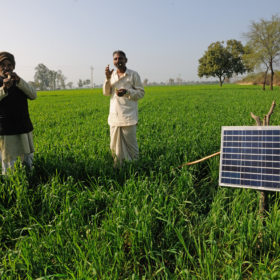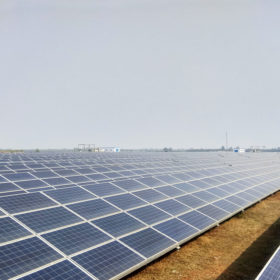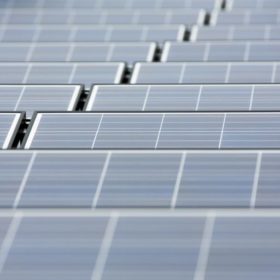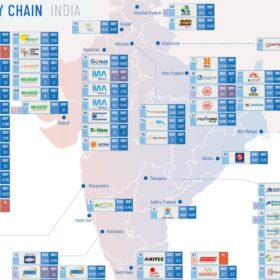Budget 2019 reaffirms priority on renewables but lacks sops
Reaffirming Indian government’s commitment to promote renewable energy, Interim Finance Minister Piyush Goyal laid emphasis on the need for increased use of electric vehicles and new-age energy solutions. He also highlighted that the Indian government would meet its target of universal household electrification by the end of March 2019.
India’s private-player driven standalone solar products market could triple by 2023
The overall private player driven market could grow to Rs 26,178 million by 2023 from current Rs 7,051 million, while the government driven market would increase from Rs 31,700 million to Rs 75,000 million. Most of the future sales is likely to come from solar lanterns with additional services, for example, mobile charging, radio, and solar home systems—according to a latest report by GOGLA.
Railways could greatly lower transport energy use, says IEA
While the rail sector carries 8% of the world’s passengers and 7% of global freight transport, it represents only 2% of total transport energy demand, thus highlighting its efficiency. By diversifying energy sources and providing more efficient mobility, rail can lower transport energy use, and reduce carbon dioxide and local pollutant emissions, say International Energy Agency (IEA) analysts.
Haryana gives farmers solar connection option for tubewells
State owned Dakshin Haryana Bijli Vitran Nigam (DHBVN) has asked 1,703 farmers from Faridabad, whose applications for new tubewell connections up to 10 BHP are pending, to give their choice for off-grid solar connections from the Haryana Renewable Energy Development Agency or grid connections from the DISCOMs, reports The Tribune.
Stable policy, varied financing options on solar industry’s budget wishlist
The solar industry seeks tailor-made financing options for end consumers, especially small and medium-sized enterprises (SMEs) and micro SMEs (MSMEs), in addition to supportive and stable government policies to ensure speedier progress.
China ready to set 3 GW quota for residential solar in 2019
Sources have told pv magazine the authorities are ready to restart the nation’s residential rooftop segment and have also agreed upon subsidy payments for other distributed generation and utility-scale projects.
This year could see a reckoning for ultra-mega PV projects
The fate of the clutch of 500 MW-plus projects due to break ground this year could determine whether such ambitious schemes have a viable future, says Wood Mackenzie in its solar 2019 forecast. And the Indian market should brace for consolidation, add the analysts, because of aggressive reverse-auction tariff pricing.
175 GW renewable unlikely if policy remains inconsistent, says CSE
India may not meet its 175 GW of renewables by 2022 target if the sector continues to be plagued by policy inconsistency, DISCOM problems and other issues, say Centre for Science and Environment (CSE) analysts.
Maharashtra to add 3.2 GW solar capacity in two years
The state has ordered 200 MW of PV across each of 16 zones this year and next, and said all government buildings, water and irrigation projects will host solar arrays.
Indian Railways plans to tender 4 GW solar project
The procurement will be worth an estimated Rs16,000 crore, and will stipulate the use of 1.2 GW of Indian-made equipment. The power generated will replace 4 GW of coal-fired electricity consumption used by the railways.














